Robert Glasper, the two-time Grammy Award-winning jazz pianist and his band, the Robert Glasper Experiment performed at the Müpa in Budapest on April 16, 2016.
We talked to Robert at a hotel by the Danube a few hours before the concert. He is just like his music: honest and enthralling.
Let’s start with your childhood and with the first influences you had. Your mother was a singer, and you accompanied her on club dates. You also played the piano in church. Please tell me about these early years and about the effect they had on your career.
I guess I started playing the piano when I was eleven, which is kind of late for piano players. Piano players start to learn around the age of five. But I was doing sports more, and my mum was a musician. She sang and played the piano, so music was always in the house.
I really clicked to it, I really wanted to do it until I was eleven years old. I started playing the piano with one finger, and then she would take me to other clubs with her. She sat me down and watched me while she was singing or she asked a waitress or someone she trusted to watch me. I was around her all the time. She has sung many styles of music, pop, R&B, funk, jazz, country music, then she was the musician for the church on Sundays. I grew up with all these kinds of music so I never had the understanding of them separately. I felt no boundary. That’s the effect this had on me now. That’s why I mix the music together and that’s why I’m styling from that age.
Can you recall a turning point when you decided to be a musician?
Probably when I was fifteen, sixteen years old and colleges came to my high school to listen and give scholarships. I got four scholarships to two or three colleges. At that point, I realised I could do something with this. I chose New York. I tried to go to New York first.
As you had a really early connection with church it came to my mind whether you consider yourself a Christian. I’m also interested in the role of faith in your life.
I grew up as Christian. I’m not as religious now. I haven’t gone to church in twenty years. I mean Christian religion is pretty much how a regular, normal person wants to live anyway.
You try not to lie, you don’t kill, you don’t steal, you treat people how you want to be treated.
You said in an other interview that when it comes to jazz teaching, everything just seems like jazz history. You also said that the emphasis should be put on the modern trends in jazz education.
This phenomenon can be compared to the way a computer school works. The teachers want to get you ready for the real world so they are not going to put you in front of a desktop of a computer made in 1988 and teach you how to work on that. They’re going to teach you the modern ways of technology.
I feel like that’s the same way with music, with jazz. If you’re going to teach students to make something all themselves then you can’t teach something from 1960 all the time. Some history is fine but not just that. You have to have some kind of modernistic approach. A lot of jazz musicians may drown when they go out to the real world without that approach. They can’t keep up with modern trends. So it’s good to know modern and history together. It just makes sense to me. Because if you teach only history you are helping the music die, you are teaching the music to die.
How do you pick the artists you want to make music with? You worked with Jill Scott, Erykah Badu, Lalah Hathaway, Norah Jones etc.
They are modern artists who have a major platform in the music, in the soul music, and I’ve known them for many years. When I moved to New York, I lived a few blocks away from Erykah. She used to come to my house, played me tapes, ideas. She knew I was a jazz guy and that I played piano. We became friends. Through that, I used to give Common piano lessons, he lived around a corner from me. Through the years, I’ve gotten to know many people in the soul, hip-hop world. So when it came time to make Black Radio, my phone book was big. Some people I asked to do Black Radio part I couldn’t do it because of lack of time, so those are the people who did Part II. Jill heard Part I and she texted me saying ’Oh my God, Why am I not on that?’ I knew her but I didn’t know her very well. After the Black Radio came out, she asked me to do a project with her. That’s not out yet. I produce a whole album with her, and then we do Black Radio II. People are asking me about Part III, and I’m going to do one, maybe next year.
Besides setting a good example how would you motivate other musicians to do the same that you did: to make their own music without the pressure of expectations?
I do master classes at colleges. I go and talk for two hours, listen to bands, play and criticize them. And the main thing I do is letting people ask questions because sometimes only playing in front of people doesn’t help you. They can say: ’okay he is good’, but it doesn’t show them different ways and options and what I went through, different decisions I made to get to where I am. I love to talk with kids about stuff like this and I want to do it more.
You have a son. Is he interested in music?
He loves music. He is a big Stevie Wonder fan. Stevie Wonder, Michael Jackson, Marvin Gaye, Pharrell are his favourites. I took him to see Stevie Wonder a few month ago in New York. I took him backstage, Stevie Wonder sang to him. He is seven years old, he plays drums, he really loves music.
You’ve won two Grammies. What did you feel when you received those?
The very first Grammy was for Black Radio. We won the R&B album of the year. This is the biggest R&B Grammy you can get, and many people were like ’who the fuck is this? I don’t know who this guy is.’ Then they listened to the album and said ’okay wow’.
But it was great because when we won that Grammy, I felt like we won that for everybody. We won it for other musicians because I guess it gives other people hope that they can make music, honest music and they don’t have to sound like Chris Brown’s music for example to get some kind of recognition. You can be honest and have fun. And that’s all what we did: having fun. It was honest in what we liked, so it was amazing.
Because of these reasons I think the first one was our best Grammy. It was unexpected and the impact was so big. It allowed so many more other artist to have their land. We opened the door for them, so now they’re coming in, and that’s great. We need everybody to come in to open the door wide. I can’t be the only one.
The second Grammy was amazing too. It was a Stevie Wonder song. We made a tribute to the Sandy Hook Elementary School shooting victims, to the children who were shot at the school. One of my friend’s daughter was killed in that, so it hit home for me. That’s why I did the song. The first time we ever played Jesus Children Of America was the night of the shooting. I have a kid so I’m feeling quite different when I think of that concert.
It is difficult to comment on this. Please tell me about your plans for the future.
I’ve been talking to a few artists who want me to produce their albums. I can’t name them yet. But some nice artists that I really love want me to produce their whole album.
I did music for the Miles ahead movie which is about Miles David’s time. It is coming out now. I I did a remix album with that.
It comes out on May 11 with Hiatus Kaiyote, Erykah Badu and Stevie Wonder just to name a few artists who are on it.
We arrived at the end of the interview. Thank you very much, Robert.
Thank you. Are you coming to the concert tonight?
Yes of course.
Great. Then we’ll meet there!
Interview and translation: Nóra Ünnep

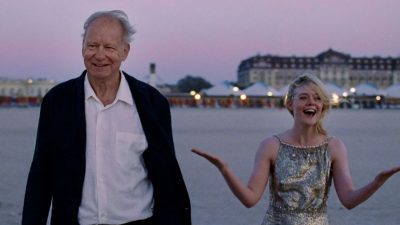
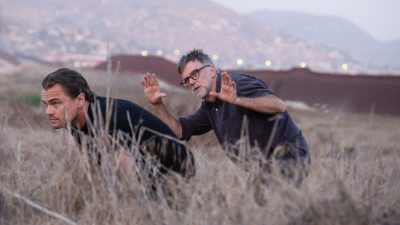
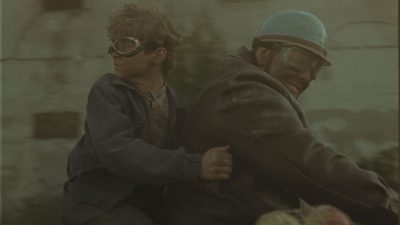















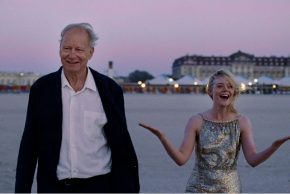
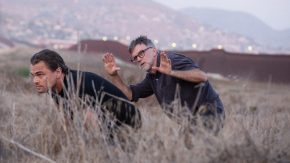
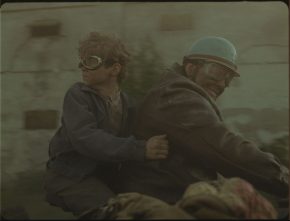
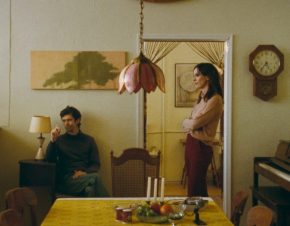
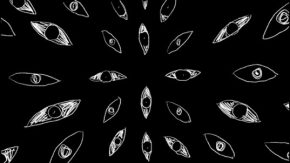

Comments